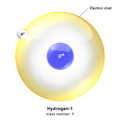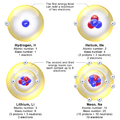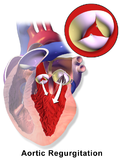Talk:WikiJournal of Medicine/Medical gallery of Blausen Medical 2014
Add topic
WikiJournal of Medicine
Open access • Publication charge free • Public peer review • Wikipedia-integrated
This article has been through public peer review.
First submitted:
Accepted:
Article text
PDF: Download
DOI: 10.15347/wjm/2014.010
QID: Q44276831
XML: Download
Share article
![]() Email
|
Email
| ![]() Facebook
|
Facebook
| ![]() Twitter
|
Twitter
| ![]() LinkedIn
|
LinkedIn
| ![]() Mendeley
|
Mendeley
| ![]() ResearchGate
ResearchGate
Suggested citation format:
Blausen.com staff (29 August 2014). "Medical gallery of Blausen Medical 2014". WikiJournal of Medicine 1 (2). doi:10.15347/WJM/2014.010. Wikidata Q44276831. ISSN 2002-4436. https://upload.wikimedia.org/wikiversity/en/8/82/Medical_gallery_of_Blausen_Medical_2014.pdf.
License: ![]()
![]() This is an open access article distributed under the Creative Commons Attribution License, which permits unrestricted use, distribution, and reproduction, provided the original author and source are credited.
This is an open access article distributed under the Creative Commons Attribution License, which permits unrestricted use, distribution, and reproduction, provided the original author and source are credited.
Mikael Häggström ![]() (handling editor) contact
(handling editor) contact
Article information
Review
Review by Mikael Häggström ![]()
![]()
![]() ,
,
These assessment comments were submitted on , and refer to this previous version of the article
I've included the vast majority of [the uploads] of Commons:User:BruceBlaus until August 2014, with permission. Generally, each image that is included in the article is regarded to be accurate and faithfully depicting the subject at hand. Also, the anatomic detail is outstanding. Some images, however, where not includes, as explained below:
Off-topic
Some where dealing rather with chemistry, so I didn't include them because I didn't really think they were off-topic for this journal:
-
Hydrogen isotopes
-
Hydrogen atom
-
Helium atom
-
Hydrogen atom
-
Tritium
-
Deuterium
-
Electron energy levels
-
Neon atom
-
Sodium chloride
-
Diffusion
Additional images regarded off-topic are displayed below:
-
Cannabis plant
Better versions available
Some images also appeared to be duplicates of each other, with insignificant differences between them. They are displayed below, with the right one chosen for inclusion in Wikiversity Journal:
A bit more detail. Also displays vessels. More detail. Left claims to be autograft, bot does not specifically show any direction (such as an arrow) to the recipient (that is, a direction back to the donor in this case) Greater detail. Shows both regurgitation and stenosis. I found no image for mitral valve regurgitation only. Both aortic valve regurgitation and stenosis. Individual images, whereof the stenosis one was not included, as per explanation in section below. Image with corrected directions for sodium and potassium by the pump, and without unexplained minus-particles.
Others
Following are additional images that I didn't include:

The aortic stenosis image shows a completely closed valve and apparently no flow through it at all, which is a state that is not seen in living patients.

The image depicting a stable vs. unstable atherosclerotic plaque doesn't really give a clear explanation regarding the differences between these two types, since basically the only difference you see between the images is the diameter of the lumen, while actual plaque stability depends largely on the constitution of the plaque.

The neonatal heart circulation image shows blood exclusively moving from the pulmonary artery to the pulmonary vein, but I think the reverse would normally occur after birth, unless there is development of Eisenmenger's syndrome (which rarely occurs from a patent ductus arteriosus). Before inclusion in Wikiversity Journal, an explanation would be needed for this direction of flow, or a correction.

The image depicting a partially blocked vessel doesn't provide significantly more information than other Blausen images depicting atherosclerotic blood vessels.

The of a cardiac tamponade where the entire heart is surrounded by blood is difficult to interpret. On the other hand, the File:Blausen 0164 CardiacTamponade 02.png image is superior in this sense by conveniently displaying the location of hemopericardium.

The image showing PID sites appears to show the whole female genital system, making it very unspecific.

The image of fetal alcohol syndrome gives an important message, but the presence of a glass inside the uterus makes it rather unencyclopaedic.

The cholesterol image doesn't give any explanation of what is going on in the image.
The images of diabetes type 1 and 2 lack any proper explanation of what is going on in the images.

The "brain mapping" image lacks an explanation for why it is related to brain mapping Also, it should have an explanation of how the electrodes are put in those deep locations.

The Alzheimer's disease image appears to show neurofibrillary tangles outside the nerve cell body, while other sources describe them as being inside.

The spinal cord image clearly delineates neurological parts by a yellow coloring, but this coloring does not specifically cover the spinal cord, but also the peripheral nerves radiating from it, making the image unspecific.

The hip anatomy image is unspecific regarding whether the hip bone or the hip region is referred to. If it refers to the hip bone, then then femur and the spine should not be included. If it refers to the hip region, the spine should not be included.
Mikael Häggström (discuss • contribs) 19:09, 25 August 2014 (UTC)
Post-publication peer review
Comments below refer to the version of this article as published
Add a post-publication review or comment
Second peer review - intracranial electrodes
I removed the image Intracranial electrode grid for electrocorticography.png, since the concern raised at its talk page needs attention before it can be reinserted, as copied to box below from that page. Mikael Häggström (discuss • contribs) 16:57, 30 August 2015 (UTC)
Review by anonymous peer reviewer ,
These assessment comments were submitted on , and refer to this previous version of the article































